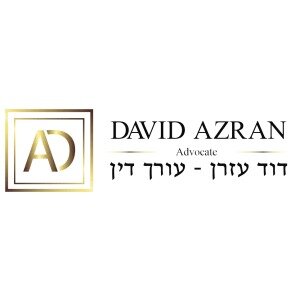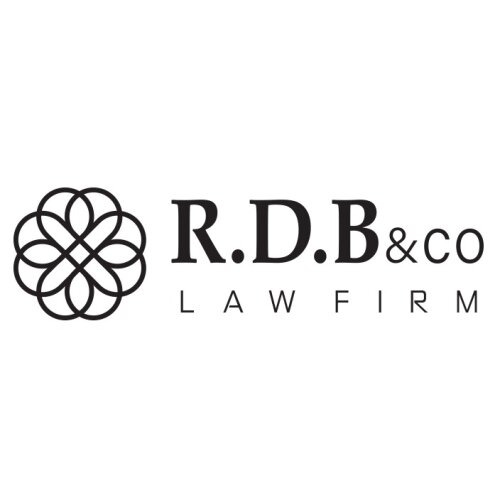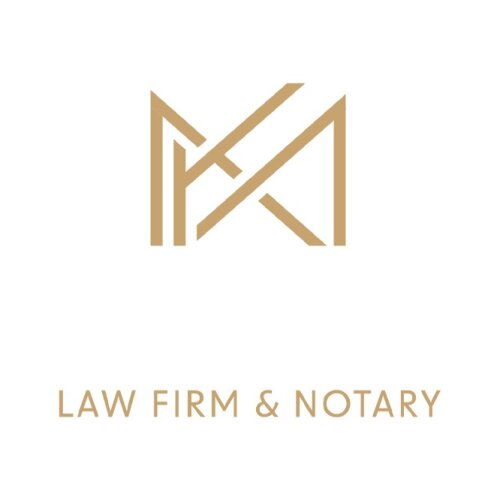Best Trusts Lawyers in Petaẖ Tiqwa
Share your needs with us, get contacted by law firms.
Free. Takes 2 min.
List of the best lawyers in Petaẖ Tiqwa, Israel
About Trusts Law in Petaẖ Tiqwa, Israel
Trusts are legal arrangements where one party, known as the trustee, holds property for the benefit of another party, known as the beneficiary. In Petaẖ Tiqwa, as in the rest of Israel, trusts are governed by the Trust Law, 1979. These laws ensure that trusts are created, managed, and terminated in accordance with Israeli legal standards. Trusts are commonly used for estate planning, asset protection, and charitable purposes. Seeking legal counsel is crucial for ensuring that a trust is legally sound and aligns with the grantor's intentions.
Why You May Need a Lawyer
There are several common situations where you may require legal help regarding trusts:
Estate Planning: To ensure that your assets are distributed according to your wishes after your death.
Asset Protection: To protect your assets from creditors or legal challenges.
Tax Planning: To take advantage of tax benefits and minimize tax liabilities.
Trust Administration: To ensure the proper management and distribution of trust assets.
Dispute Resolution: To resolve conflicts between trustees and beneficiaries.
Each of these situations involves complex legal considerations, where professional legal advice can be invaluable.
Local Laws Overview
In Petaẖ Tiqwa, Israel, trusts are regulated under the Trust Law, 1979. Key aspects of this law include:
Formation: Trusts must be established via a trust deed, detailing the purpose, trustee, and beneficiary.
Types of Trusts: Common types include revocable and irrevocable trusts, each with specific legal implications.
Fiduciary Duty: Trustees are obligated to act in the best interests of the beneficiaries and must manage the trust assets prudently.
Registration: Some trusts must be registered with relevant authorities, particularly if they are public trusts.
Taxation: Trusts are subject to taxation, and different rules apply depending on the type of trust and the residency status of the trustee.
Frequently Asked Questions
What is a trust?
A trust is a legal arrangement where one person (trustee) holds assets on behalf of another (beneficiary).
What types of trusts are available in Israel?
The most common types include revocable and irrevocable trusts, public and private trusts, and testamentary trusts.
Do I need to register my trust?
Registration is required for public trusts but not typically for private trusts, although it is advisable to keep a legal record.
Can I be a trustee of my own trust?
Yes, you can be a trustee of your own trust in a revocable trust, but it's generally not recommended for irrevocable trusts.
Are trusts subject to tax in Israel?
Yes, trusts are subject to tax, and the specific tax obligations depend on the type of trust and other factors.
How can a trust help in estate planning?
A trust ensures your assets are managed and distributed according to your wishes, possibly providing tax benefits and avoiding probate.
What duties does a trustee have?
Trustees are required to manage trust assets prudently, act in the beneficiaries' best interests, and adhere to the terms of the trust deed.
Can a trust be changed or revoked?
Revocable trusts can be amended or dissolved by the grantor, whereas irrevocable trusts generally cannot be changed once established.
What happens if a trustee fails in their duties?
Beneficiaries can take legal action against a trustee who fails to fulfill their fiduciary responsibilities, which may involve financial restitution or removal of the trustee.
Should I consult a lawyer to create a trust?
Yes, consulting a lawyer is highly advisable to ensure that the trust is legally sound and meets all your specific needs and objectives.
Additional Resources
For more information, you may find the following resources helpful:
Ministry of Justice: The governmental body responsible for trust regulation in Israel.
Israel Bar Association: Provides resources and a directory of qualified legal professionals specializing in trust law.
Local libraries: Offer books and materials on trusts and estate planning.
Next Steps
If you need legal assistance with a trust in Petaẖ Tiqwa, consider taking the following steps:
Consult a Legal Professional: Seek out a lawyer who specializes in trusts and estate planning.
Prepare Documentation: Gather all necessary documents and information related to your assets and the trust you wish to establish.
Schedule a Consultation: Arrange a meeting with your lawyer to discuss your needs, options, and next steps.
Follow Through: Work closely with your lawyer to draft, review, and finalize the trust deed, ensuring all legal requirements are met.
By following these steps, you can create a trust that safeguards your assets and aligns with your wishes for the future.
Lawzana helps you find the best lawyers and law firms in Petaẖ Tiqwa through a curated and pre-screened list of qualified legal professionals. Our platform offers rankings and detailed profiles of attorneys and law firms, allowing you to compare based on practice areas, including Trusts, experience, and client feedback.
Each profile includes a description of the firm's areas of practice, client reviews, team members and partners, year of establishment, spoken languages, office locations, contact information, social media presence, and any published articles or resources. Most firms on our platform speak English and are experienced in both local and international legal matters.
Get a quote from top-rated law firms in Petaẖ Tiqwa, Israel — quickly, securely, and without unnecessary hassle.
Disclaimer:
The information provided on this page is for general informational purposes only and does not constitute legal advice. While we strive to ensure the accuracy and relevance of the content, legal information may change over time, and interpretations of the law can vary. You should always consult with a qualified legal professional for advice specific to your situation.
We disclaim all liability for actions taken or not taken based on the content of this page. If you believe any information is incorrect or outdated, please contact us, and we will review and update it where appropriate.











